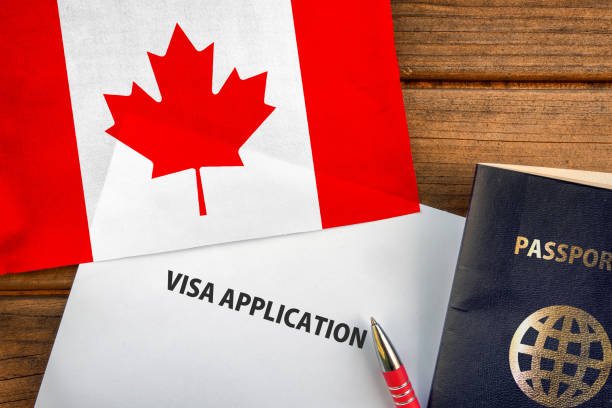Dreaming of building a new life in Canada, but you are not sure yet on how to land your first job? Worry no more…
You’re not alone. Every year, thousands of skilled professionals and hopeful workers arrive in Canada with ambition, talent, and determination, but finding a job in a new country can feel like solving a puzzle without the picture on the box. The good news? With the right strategies, resources, and mindset, you can unlock exciting job opportunities and start your Canadian journey on the right foot.
In this post, we’ll walk you through everything you need to know to find a job in Canada as an international worker, from understanding the job market to writing the perfect resume and navigating immigration pathways.
How Can I get Jobs in Canada?
Canada is a country in Northern America and It has consistently ranked among the top destinations for international workers seeking new career opportunities and a better quality of life. Known for its economic stability, multicultural society, and strong labor protections, Canada offers an attractive environment for professionals from around the globe.
The country’s commitment to diversity is reflected not only in its social fabric but also in its immigration policies. Skilled workers, tradespeople, and students are welcomed through a variety of immigration programs designed to meet labor market needs. With sectors like technology, healthcare, and construction experiencing continuous growth, job opportunities are plentiful for qualified candidates.
This post has been created to provide international job seekers with a practical, step-by-step orientation to finding preferred employment in Canada. Focusing on understanding the job market, preparing a Canadian-style resume, securing work permits, and more will be explored in detail to help readers make informed decisions and take confident steps toward employment success.

Understanding the Canadian Job Market
To successfully find employment in Canada, it is essential that the job market be properly understood. Certain sectors have been identified as high-demand across the country, including healthcare, information technology, skilled trades, engineering, finance, and agriculture. Due to Canada’s aging population and digital transformation, these areas continue to experience labor shortages.
Thorough labor market research should be conducted before beginning a job search. Tools such as the Government of Canada’s Job Bank, LinkedIn Insights, and provincial labor reports can be used to gather valuable information on job trends, salary expectations, and regional hiring needs.
It should also be noted that job demand can vary by province. For instance, Alberta and Saskatchewan often experience high demand in oil and gas or agriculture, while Ontario and British Columbia may show increased opportunities in tech and healthcare. By aligning qualifications and experience with regional labor needs, better chances of employment can be secured.
Work Permit and Immigration Pathways
Before employment can begin in Canada, proper work authorization must be obtained. Several pathways have been established by the Canadian government to facilitate legal work for foreign nationals. This includes;
Express Entry System
Through the Express Entry system, skilled workers are invited to apply for permanent residence based on a points system. Programs under this system include the Federal Skilled Worker Program (FSWP) and the Canadian Experience Class (CEC). Factors such as language proficiency, education, work experience, and age are used to calculate eligibility.
Provincial Nominee Programs (PNPs)
Each province and territory operates its own Provincial Nominee Program, which allows local governments to nominate individuals based on regional labor shortages. International candidates who receive a provincial nomination are given an advantage in the Express Entry pool.
Temporary Foreign Worker Program (TFWP) and International Mobility Program (IMP)
Temporary jobs can be secured through programs such as the Temporary Foreign Worker Program (TFWP) and the International Mobility Program (IMP). Under TFWP, employers must obtain a Labour Market Impact Assessment (LMIA) to prove no Canadian citizen is available to fill the role. IMP, on the other hand, includes jobs that are exempt from LMIA, often due to international agreements or significant Canadian interests.
Post-Graduation Work Permit (PGWP)
For international students who have graduated from eligible Canadian institutions, the Post-Graduation Work Permit allows temporary employment in Canada for up to three years. This permit is often used as a bridge to permanent residency.
In all cases, it is critical that the correct work authorization be in place before employment begins. Violations of work permit conditions can result in penalties or ineligibility for future immigration applications.
Crafting a Canadian-Style Resume and Cover Letter
To stand out in the Canadian job market, a resume tailored to local standards must be prepared. The Canadian resume is typically concise, focused, and achievement-driven. It is usually formatted in reverse-chronological order and spans one to two pages.
Several important differences exist between Canadian resumes and those commonly used in other countries:
- Photographs and personal information such as age, gender, or marital status should be omitted.
- Sections such as “Professional Summary”, “Work Experience”, and “Skills” should be clearly labeled.
- Bullet points should be used to highlight accomplishments with quantifiable results.
Cover letters should be customized for each job application. The letter should briefly introduce the applicant, explain their interest in the role, and demonstrate how their skills match the job requirements. Generic or copy-pasted cover letters are discouraged.
Common mistakes such as spelling errors, using outdated templates, or submitting resumes not tailored to the job description should be avoided. Professional tone, clean formatting, and relevance to the role will increase the likelihood of being shortlisted.
Job Search Strategies
Once the foundation is laid through proper documentation and market research, effective job search strategies should be implemented to maximize opportunities.
Top Job Search Websites
Several job portals can be used to search for available roles in Canada. Some of the most widely recognized websites include:
- Indeed.ca – One of the largest job search platforms, where thousands of job listings across various industries can be found.
- Job Bank – The Government of Canada’s official job portal, which offers updated job listings and helpful labor market information.
- Monster, Workopolis, and Glassdoor – These sites also offer a wide range of listings along with company reviews, salary data, and other resources.
- LinkedIn – Not only a job board, but a platform to network with potential employers, find company insights, and apply directly to job postings.
Utilizing Company Career Pages
Often, the best way to apply for a job is directly through the company’s website. Many large organizations have dedicated career sections where openings are posted first. It is important to research target companies and regularly check their career pages for new job opportunities.
Cold-Emailing Companies with Tailored Resumes
Cold-emailing can be an effective strategy, particularly if a specific company is desired. A personalized approach that includes a well-crafted resume and tailored cover letter can demonstrate initiative and interest in a company even when no job posting is listed. Expressing how skills match the company’s mission or goals may prompt consideration for current or future openings.
Working with Canadian Recruiters and Employment Agencies
Canadian recruitment agencies specialize in matching talent with appropriate job openings. Working with these agencies can provide access to unlisted job opportunities, advice on local hiring trends, and professional resume reviews. By registering with reputable agencies, applicants can benefit from personalized job search assistance and potentially be placed in roles more quickly.

Networking and Professional Associations
In Canada, networking is often one of the most effective ways to find job opportunities. Personal connections and referrals are highly valued in the Canadian job market, and a proactive approach to networking can significantly increase the chances of securing a position.
Importance of Networking
Networking is not limited to professional events. Many job openings are filled through word-of-mouth and connections, so it is important to start building a network early. Connecting with professionals already working in the desired field can provide valuable insights into the hiring process, company culture, and industry trends.
Using LinkedIn to Connect with Industry Professionals
LinkedIn has become a crucial tool in job searching and networking. By creating a polished, updated profile and engaging with relevant content, professionals can increase their visibility to recruiters and hiring managers. Joining industry-specific groups, interacting with posts, and directly reaching out to professionals or recruiters can expand a network and lead to potential job referrals.
Attending Virtual or In-Person Career Fairs and Industry Events
Both virtual and in-person events provide excellent opportunities to meet employers, learn about new roles, and establish connections. Many organizations, universities, and professional bodies hold career fairs, workshops, and conferences that can be attended by international workers seeking job opportunities in Canada. Such events often allow participants to meet recruiters, submit resumes, and even schedule interviews on the spot.
Joining Immigrant-Serving Organizations and Local Professional Groups
Many cities across Canada have immigrant-serving organizations that help newcomers integrate into the workforce. These organizations often offer networking events, job readiness workshops, and mentorship programs. Additionally, local professional associations provide great opportunities to meet other professionals in the same field, access resources, and stay informed about industry-specific events.
Support Services for International Workers
International workers can access a variety of support services designed to help with the transition into Canada’s labor market.
Government-Funded Programs
The Canadian government offers numerous programs to assist newcomers in their job search. These services often include settlement assistance, employment counseling, and language training. Provincial programs may also provide resources tailored to the unique needs of specific regions or industries.
- Settlement Services: These services are available to help newcomers settle in Canada, offering assistance with job searches, housing, and community integration.
- Employment Support: Government-funded programs help workers prepare for employment by providing workshops on resume writing, interview techniques, and job search strategies.
Nonprofits and Community Organizations
Many nonprofit organizations across Canada support immigrants and international workers by providing job search services, resume reviews, and mentoring programs. These organizations often offer services at little to no cost and can be invaluable in helping newcomers navigate the job market.
Resources for Resume Review, Mock Interviews, and Credential Recognition
International workers can also access free or low-cost services that assist with job applications, such as resume reviews, mock interviews, and help with credential recognition. Organizations such as Immigrant Services Toronto or Newcomer Centre of Peel offer resources designed to ease the transition into Canadian workplaces.
Credential Assessment and Language Skills
Having foreign credentials recognized and demonstrating language proficiency is often essential for securing employment in Canada.
Credential Recognition
Before applying for jobs, it may be necessary to have foreign credentials assessed and recognized. Several organizations can evaluate academic degrees, diplomas, and professional qualifications to ensure they meet Canadian standards:
- World Education Services (WES) – One of the most widely accepted credential assessment bodies in Canada.
- International Qualifications Assessment Service (IQAS) and International Credential Assessment Service (ICAS) – Other trusted agencies for assessing educational credentials from abroad.
These assessments help employers understand the value of foreign qualifications and can significantly impact hiring decisions.
Language Requirements
Proficiency in English or French is often a prerequisite for employment in Canada, depending on the job and the immigration stream. For federal immigration programs such as Express Entry, language tests like IELTS (International English Language Testing System) or CELPIP (Canadian English Language Proficiency Index Program) are required to demonstrate language abilities.
It is important to carefully review job postings to ensure the language requirements are met, as employers often list a specific level of proficiency (e.g., CLB 7 or higher). Many language testing centers across the world provide these exams, and results can often be used for immigration applications as well.
Free or Low-Cost Language Training Programs
To support newcomers, several programs provide free or low-cost language training:
- Language Instruction for Newcomers to Canada (LINC) – A government-funded program offering free English or French classes to eligible immigrants and refugees.
- English as a Second Language (ESL) programs are also widely available across the country, often through community centers, colleges, and universities.
Improving language skills is not only crucial for passing language exams but also essential for succeeding in professional roles in Canada.
Preparing for Interviews
Successfully landing an interview is a significant step, but preparation is key to turning that opportunity into a job offer. Understanding Canadian interview etiquette and being ready for common interview questions will set candidates up for success.
Common Canadian Interview Questions and Etiquette
Canadian employers value professionalism, clear communication, and cultural fit when conducting interviews. Common questions that may be asked include:
- Tell me about yourself – This open-ended question gives candidates a chance to introduce their background and explain why they are suited for the role.
- Why do you want to work here? – Demonstrating knowledge of the company’s mission, values, and goals shows genuine interest.
- What are your strengths and weaknesses? – Candidates are expected to provide honest, self-aware answers, showcasing both their skills and areas for improvement.
- Describe a time when you overcame a challenge at work. – Behavioral questions like this one assess problem-solving abilities and teamwork skills.
Interview etiquette in Canada typically involves a formal, professional demeanor. Candidates are expected to arrive on time (preferably 10-15 minutes early), dress appropriately for the role, and greet interviewers with a firm handshake and eye contact. Thank-you notes sent within 24 hours of the interview are also strongly recommended.
Researching the Company Beforehand
Thorough research on the company and its industry is crucial before attending an interview. Understanding the company’s products, services, culture, and recent news demonstrates interest and preparation. This can also provide the opportunity to tailor responses to align with the company’s values and goals, increasing the likelihood of a successful interview.
Following Up with a Thank-You Email
After the interview, sending a polite thank-you email is a professional gesture that expresses appreciation for the opportunity. It allows candidates to reiterate their enthusiasm for the position, briefly recap key points discussed in the interview, and reaffirm their qualifications. A timely thank-you note shows professionalism and can leave a positive lasting impression.
Staying Resilient and Motivated
The job search process can be daunting, particularly for international workers who may face additional challenges such as cultural differences, language barriers, and navigating immigration requirements. It is important to acknowledge these challenges while maintaining a resilient mindset throughout the process.
Acknowledge Challenges Faced by International Job Seekers
The Canadian job market can be competitive, and international job seekers may experience frustrations such as:
- Difficulty understanding local job market nuances or interview expectations.
- Limited local work experience, which may affect initial opportunities.
- Gaps in understanding Canadian workplace culture.
While these challenges are common, they should not be seen as barriers. Instead, they can be viewed as opportunities for growth and learning. Newcomers are encouraged to leverage available resources, continuously improve their skills, and stay persistent.
Encouraging Persistence and Learning from Rejections
It is essential to remember that rejections are a normal part of the job search process. Many successful professionals in Canada have faced multiple rejections before landing their ideal roles. Persistence is key—each application, interview, and rejection offers valuable learning experiences that can be used to improve future applications.
Feedback from employers (if provided) should be viewed as constructive and used to enhance resumes, cover letters, or interview techniques. Rejections should be seen not as setbacks but as an integral part of the job search journey.
Sharing a Motivational Success Story
Consider the story of Amina, an engineer from India who moved to Canada. Initially, she faced challenges in securing a job in her field due to a lack of Canadian work experience. After months of rejections, she attended a career fair where she connected with a recruiter who was impressed by her skills and perseverance. With continued networking, persistence, and additional language training, Amina eventually landed a position with a reputable engineering firm. Today, she not only works in her field but also mentors other newcomers, proving that determination and resilience can lead to success.

The journey to finding a job in Canada as an international worker is filled with opportunities, challenges, and valuable learning experiences. By understanding the Canadian job market, preparing the right documentation, utilizing job search strategies, and maintaining persistence throughout the process, international workers can greatly increase their chances of success.
Key takeaways include:
- Researching and understanding the job market in Canada will provide insights into in-demand sectors and regional job opportunities.
- Work permits and immigration pathways must be understood, ensuring that proper authorization to work in Canada is obtained.
- Crafting a tailored Canadian-style resume and cover letter is crucial for making a positive first impression.
- Networking, leveraging support services, and improving language skills are essential strategies for increasing job prospects.
By staying resilient and proactive, international job seekers can navigate the complexities of the Canadian job market. With the right resources, preparation, and mindset, securing a job in Canada is within reach. It is important to remain motivated, keep learning from experiences, and embrace the opportunities that come along the way.


















I am from Nigeria lmo state I am interested for the job
AM ready for Canada that is my go, Canada here I come.